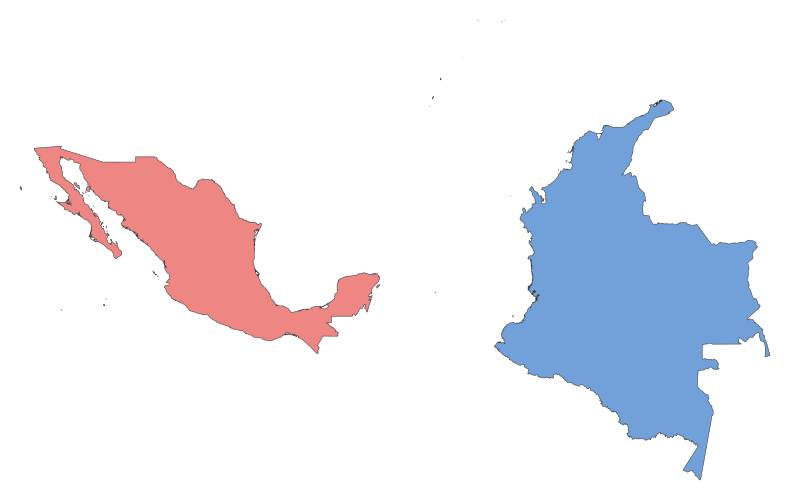Mexico vs. Colombia: A Geographical Comparison

Comparison Table
| Category | Mexico | Colombia |
|---|---|---|
| Location | North America, bordered by the USA, Belize, and Guatemala | South America, bordered by Venezuela, Brazil, Peru, Ecuador, and Panama |
| Size | 1.96 million sq km (13th largest globally) | 1.14 million sq km (25th largest globally) |
| Climate | Varied: arid, tropical, temperate | Tropical along coast, cooler in highlands |
| Natural Resources | Oil, silver, copper, gold, timber | Coal, oil, emeralds, coffee, hydropower |
| Urban Development | Highly urbanized (e.g., Mexico City, Monterrey) | Mixed urban-rural (e.g., Bogotá, Medellín) |
| Transportation | Extensive road networks, international airports | Developing infrastructure, focus on Bogotá's TransMilenio |
Description
Mexico
Mexico, located in North America, is a country rich in history and culture, with roots tracing back to ancient civilizations like the Aztecs and Maya. Its diverse geography includes deserts, mountains, and tropical beaches. Economically, Mexico is a major player in manufacturing and trade, heavily influenced by its proximity to the USA. Culturally, it is known for its vibrant traditions, such as Día de los Muertos and mariachi music.
Colombia
Colombia, situated in South America, boasts lush rainforests, the Andes Mountains, and Caribbean coastlines. Its history is marked by indigenous cultures and Spanish colonization. Colombia's economy thrives on coffee, flowers, and increasingly, technology. The country is celebrated for its music (e.g., cumbia, vallenato) and festivals like the Carnival of Barranquilla. Recent urban development has transformed cities like Medellín into innovation hubs.
Both nations share a love for soccer, vibrant cultures, and biodiversity, yet each offers unique landscapes and economic strengths.